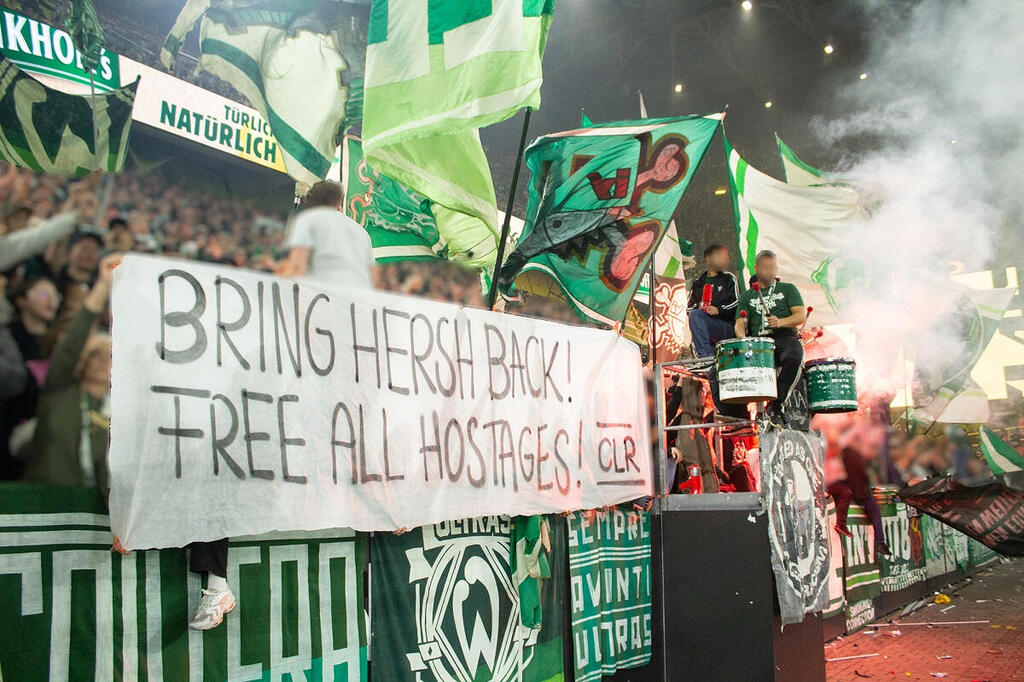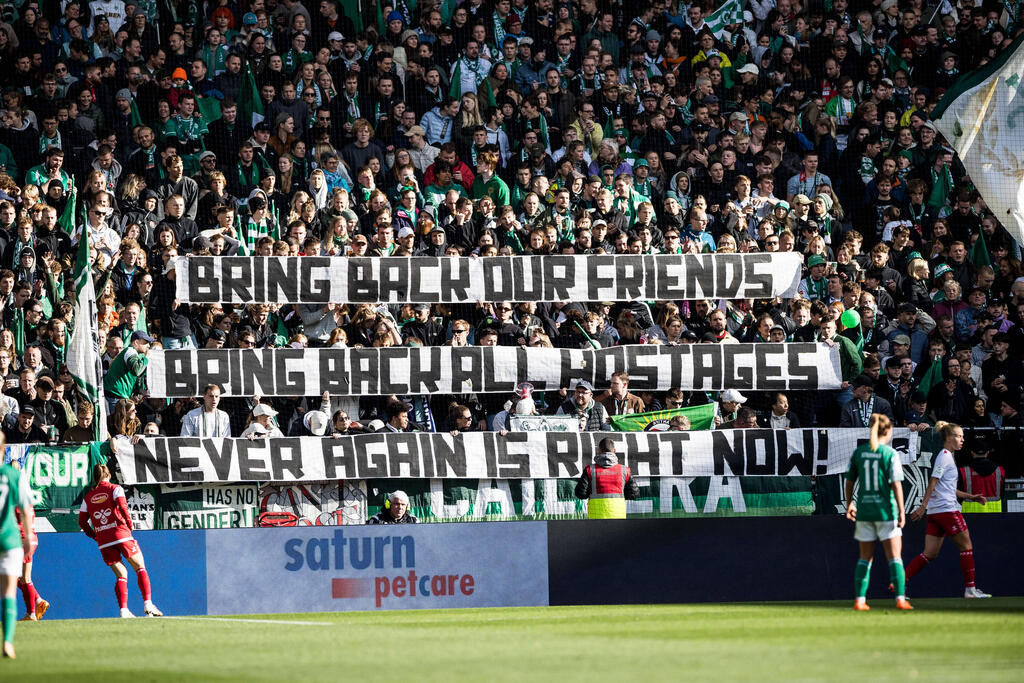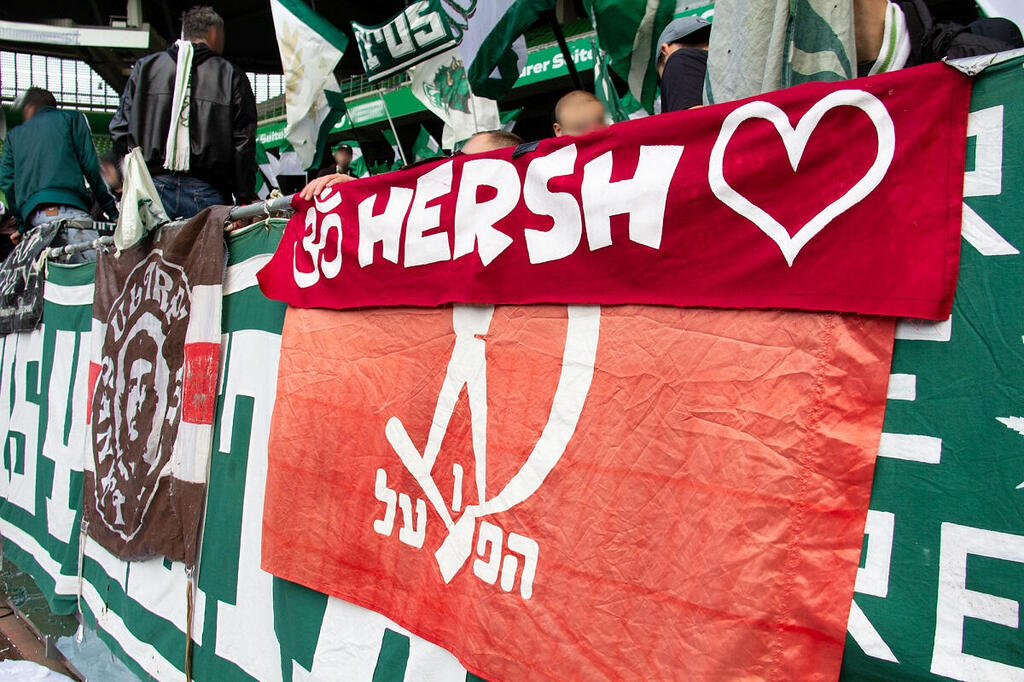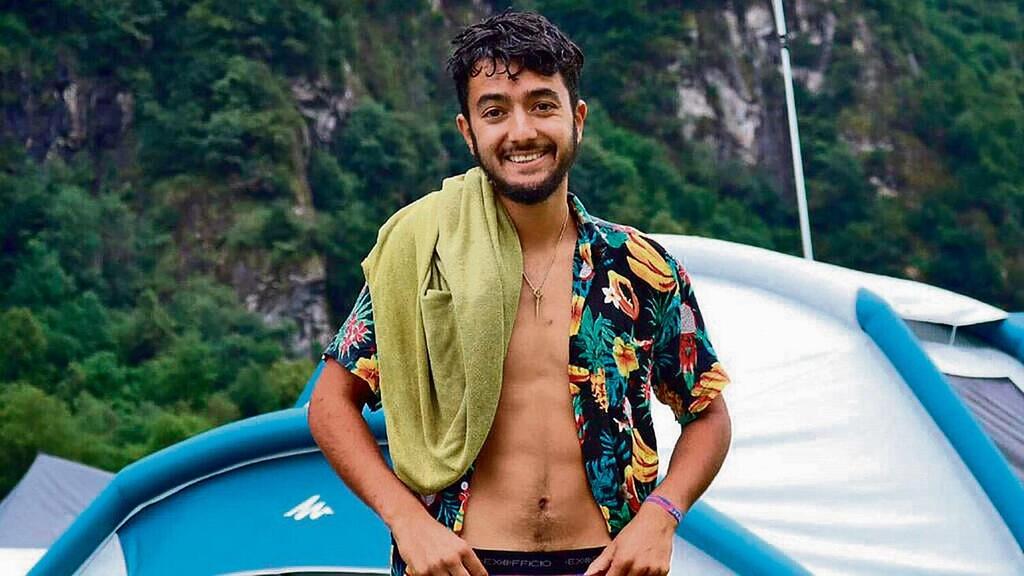When people, never mind a nation, go through extensive trauma, their path to healing goes through positive reinforcement from those who care for them. It could be a hug, a kind word, knowing someone is there to support them in case they falter. Post October 7, many of those comforting words and deeds were withheld from Israel. If anything, many parts of the world have turned her back on Israel entirely, or made do with Lukewarm receptions.
Read more:
But the one exception was the Germans. With Germany’s past when it comes to Israel and the Jewish people being somewhat problematic, not many were expecting this to happen, but the fact of the matter is German politicians publicly came out against Hamas' barbaric attacks and made it a point to emphasize Israel’s right to defend itself. And by the way, it wasn’t only the German officials who did so, but the proletariat as well. Within the sporting realm, Both Bayern Munich and Borussia Dortmund hosted children from the Gaza border region, with the latter dedicating a moment of silence for those who were murdered in the massacre, and several other clubs have made a point to show solidarity with Israel.
But one club stood above them all, and that is Werder Bremen, who, immediately after the attack, showed their support for Israel, called for liberating the hostages and showing comforting solidarity all around. In both women’s and men’s games, where Werder Bremen fans lifted up signs, some of which were in Hebrew, calling out for free the hostages, and even in commemoration of Inbar Heyman, who was abducted and murdered in Gaza.
Overall, Bremen has seven different ultras groups, two of which have distinct and notable ties with Israel football fans belonging to two teams, one from Jerusalem, and the other from Haifa. The latter is called Ultra Boys. They are the ones who displayed signs in Heyman‘s memory.
The other ultras group associated with the Jerusalem base club are called Infamous Youth, and it turns out the their roots to the Israeli connection has been around for 15 years.
From Bergren-Belsen to some original Jerusalem Hummus
Arne Jans, 39 and hailing from Bremen where he still resides, serves as a political educator at a center for youth education. He has a longstanding interest in the issues of racism and discrimination. Twelve years ago, he embarked on projects focused on anti-Semitism, and for the last four years, his work has been exclusively centered on this subject. In another facet of his life, he began taking his father to Bremen football matches at the tender age of eight. Today, Jans holds the esteemed position of the elder amongst the ultra fans of Infamous Youth.
Jans reminisces, "Our journey began approximately 15 years ago when a social worker named Thomas Happke thought to bring a group of 20-25 year old Bremen fans to Jerusalem. The idea was to acquaint them with Israeli football enthusiasts. They had been touring the Old City and wrapped up slightly ahead of schedule. That's when Shai Golob, their Israeli chaperone, proposed they grab a beer and mingle with fans of the Jerusalem club."
As they sipped their beers and engaged in conversation, they had a revelation. Despite speaking in two different languages, their voices merged into one, expressing a shared belief: football and stadiums could be instrumental in societal improvement, in curbing hatred, and in bridging gaps between diverse groups. As they spoke, the preconceived notions about Jerusalem and Germany dissipated. Their silence spoke volumes too, highlighting their commonalities and minimizing their differences. It was the beginning of a powerful bond.
This relationship continued to be nurtured through recurring visits. Fans from various Israeli football clubs would meet with their hosts at Bergen Belsen. Together, they would discuss football and its potential role in ensuring that such atrocities never recur. The German fans, in turn, would visit Israel, travelling around, and continuing the conversation about football and its role in honoring the memory of the victims. Bremen fans would extend their congratulations on league advancements or derby victories. In a show of solidarity, Hapoel fans would raise banners supporting Bremen fans in the face of police brutality. Bremen fans would learn about how the Jerusalem fans were facilitating football matches between Israeli and Palestinian children.
Among the passionate supporters of the Jerusalem team are friends Aner Shapira and Hersh Goldberg-Polin. They were both at the "Nova" festival when disaster struck. Shapira was murdered by Hamas terrorists, while Hersch was seriously injured and taken to Gaza. His room is still filled with banners and shirts that show his love for the Hapoel Jerusalem and Werder Bremen football teams.
In the last year, Hersh visited Bremen three times. In September, just three weeks before the horrific attack and his kidnapping, around 20 fans from Bremen came to Israel to celebrate the wedding of a Hapoel fan. They were welcomed into Hersh's family home for a Sabbath meal, with Hersh's mom, Rachel, preparing salads and pastries. Within three weeks, the situation rapidly escalated, and what was a global event became a personal concern for the Bremen fans, as one of their number was taken. It was no longer just another news item.
David, a 25-year-old social worker and Bremen fan, remembers, "We were playing a game away that day. We soon realized this wasn't just another day with rockets. We didn't cheer, some of us stayed outside the stadium. We didn't celebrate any goals. It quickly became clear that Hersh was taken. That night, we knew we had to do something."
"On Monday, we start reaching out to members of the German parliament. We tell them that the hostages need to be set free. Over the next few days, we turn to social media to generate attention in the press. After that, we start raising money. We won't stop until everyone is back. We meet, decide on a message for a banner, translate the text using Google Translate, check it with the fans in Israel, and each banner takes about two to three days of work. We add our own message to the German phrase 'Never Again'. 'Never Again' starts now."
Yesterday was International Holocaust Remembrance Day. The team and their most passionate fans, known as the Ultras, put up some special banners. Alongside their usual ones, they put up banners that made a connection between the Holocaust and October 7.
"As far as I'm concerned, every day is October 7"
"Hersh always loved sports," his father John remembers. "He played baseball and football in America till he was 7, but soon after we moved to Jerusalem, he started playing soccer and basketball. It's only now, when Hersh isn't with us, that we're really understanding what sports meant to him. It was a place where he felt he belonged, where he could express himself, where he could put his political and social beliefs into action. But it's only now, when fans from Bremen are constantly showing their support for us, looking after Hersh's two sisters, and hanging banners for him in stadiums in Germany, that we're seeing just how much he loved sports, and how much it gave back to him."
How would he respond in the face of such support?
"He would've felt a mix of thrill and shyness. He's not one for being the center of attention, but seeing this gives us a boost. It's like a comforting breeze on a bitterly cold day. We never realized that sport could have such a strong influence. We have to commend the Germans, I want to call it bravery, but it's more acceptance. They just get what happens when people don't stand up against unfairness."
"We consistently show support for Israel when it faces threats, or on significant days like the International Holocaust Remembrance Day or November 9th, which commemorates Kristallnacht", says Arne Schulz, who handles fan relations and anti-discrimination for Bremen, "We expected expressions of support and we approve nearly all requests from fans. We have a clear moral standpoint. This is more important than the innate fear that a club member might face repercussions for voicing a pro-Israeli view.
"We are obliged to act this way because the captives and their families didn't choose this destiny. We receive numerous emails from Jews and Israelis expressing gratitude for our actions. This strengthens us, but we wish more people would join us in this effort. It might not be the safest route as there are risks involved in taking sides, but we felt it was crucial to show our fans with personal ties to Israel that we are with them, that we share their sorrow for what they are enduring."
"Antisemitism is a constant in Germany. People have a foggy understanding of Israel, its location, and the number of Arabs residing there. If you're not Jewish, you don't feel it, but it becomes evident during major events like the Gaza war," Jans explains. "The antisemitism seen on October 7 is a new height of public backing for Hamas. Lots of young people are unaware of what Auschwitz is or fail to link past and present.
"I'm a passionate fan with an Ultras lifestyle. My duties include organizing choreography, banners, giving talks on football culture or police harshness, and teaching them to question things. We go to every match, both home and away, supporting and cheering for our team, but we also stand against racism, bias, and antisemitism. Our goal is to bring societal change via football.
"Thanks to our personal ties, we grasp the seriousness of the situation. We understand, unlike many others in society, that Israel isn't the villain here, and Hamas are no freedom fighters. This understanding quickly turned into acts of solidarity, banners, cheers, protests, fundraising, and raising awareness. The entire club backed us and endorsed our actions. We've faced no criticism for our actions, except on social platforms. We're not scared as a group to take these steps, but I also believe that it's considerably easier for us to do this as non-Jews."
How does this activity affect you?
"I can only speak to my reality. As far as I'm concerned, every day is October 7."





